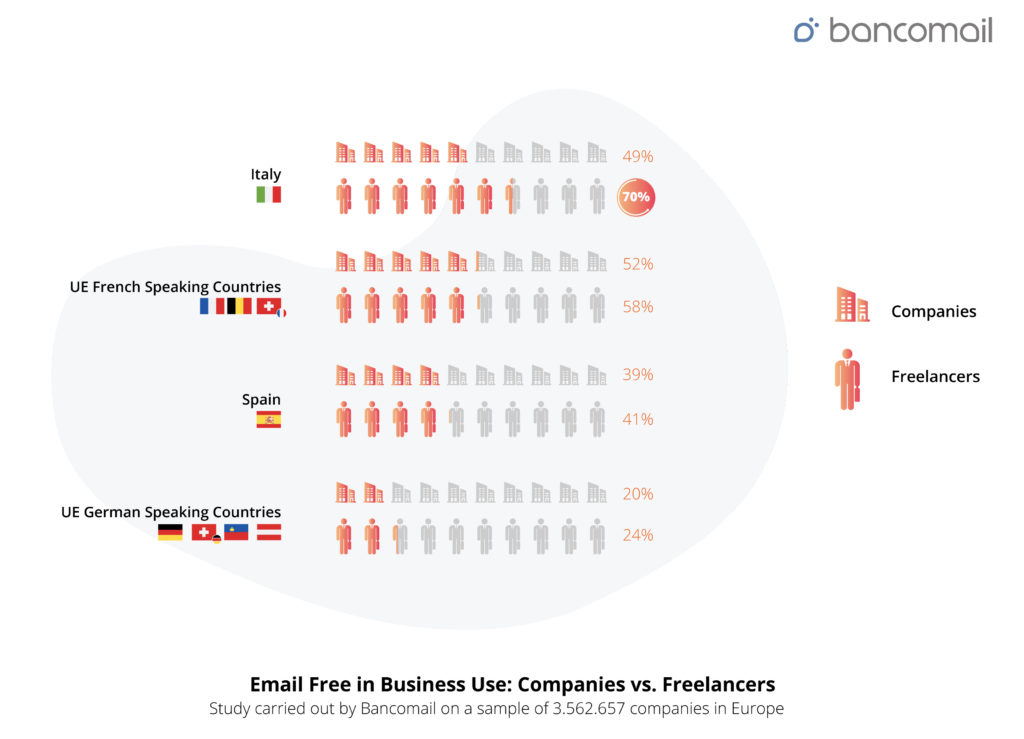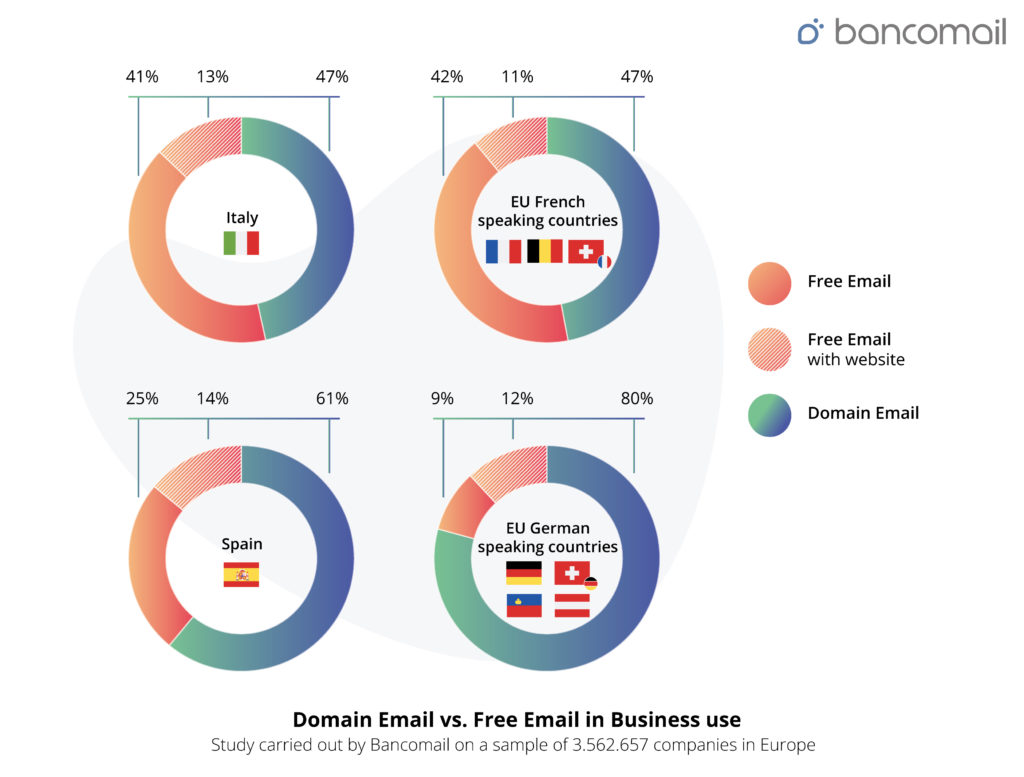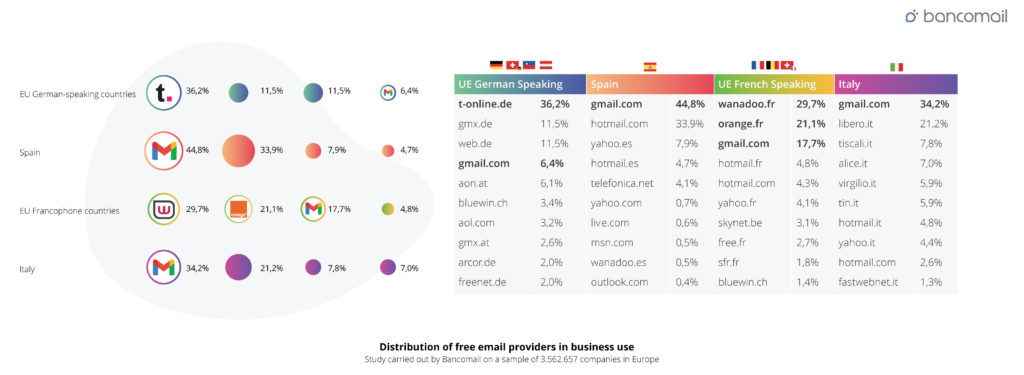Contents
What surprises the evaluation of european email domains brings
Bancomail can now look back on more than 20 years of experience in a market that is hardly older. As pioneers in the field of email marketing and address databases, and also with an enormous data stock, elaborately collected, evaluated, cleaned and always supplemented with additional information, this data offers enormous added value and puts Bancomail in a privileged position.
Intensive data analysis and research makes it possible to identify and track market movements in detail and likewise to filter for specific, technological developments, which goes far beyond providing databases for marketing purposes. These analyses have a long history at Bancomail, which began sharing its industry know-how with the public over 14 years ago. Thus, publication of findings continues to be an important concern and is also currently leading to a number of new publications.
For the current analysis, 3,500,000 email records for Europe were selected from a total of more than 11 million records worldwide and the results were surprising.
Free domains vs. Paid domains
Use a free email address (like Gmail.com, Libero.it, Tiscali.it, etc.) or buy an email domain that matches your brand? This is one of the first questions a freelancer or a SME (Small and medium-sized enterprises) asks before officially opening their business. And it is surprising that to date, 54% of Italian freelancers and businesses still prefer free email addresses to paid domains, which look more professional, especially in a business context, thus saving their budget.

German-speaking countries lead the way with paid email domains
Companies in Germany and Austria clearly lead Europe in the percentage of paid email domains (80%), followed by Spain (61%), French-speaking European countries such as France and Belgium (47%) and finally Italy, also with 47%. It is interesting to note that when free emails are used, the activity often does not even include a website: in Italy in 41% of cases, in French-speaking European countries in 42% of cases, in Spain in 25% of cases and only 9% of cases in German-speaking European countries.

The most common free domains
In Italy, Gmail.com (34.2%) is by far the favourite among the free domains. It is followed by Libero.it with quite a large share (21.2%), all other domains are of much less importance. Tiscali.it (7.8%), Alice.it (7.0%), Virgilio.it (5.9%), Tin.it (5.9%), Hotmail.it (4.8%), Yahoo.it (4.4%), Hotmail.com (2.6%) and Fastwebnet.it (1.3%).
In Germany, on the other hand, the most used free mail provider is T-online.de (36.2%), while Gmail.com accounts for only 6%. In Spain, as in Italy, Gmail is the most popular (44.8%), closely followed by Hotmail (33.9%) and Yahoo.es (7.9%). In the French region, Orange (which also owns the domain Wanadoo.fr) confirms its supremacy with a share of over 50 %.

What conclusions are to be drawn
Data like this is interesting because it provides a snapshot of the behaviour of European business users and allows conclusions to be drawn about informatisation, while also highlighting the differences between the various countries. Of course, the various factors influencing the differences, such as the different composition of the sector, must be taken into account when drawing conclusions. In Italy, for example, the importance of micro-enterprises and the retail sector must be taken into account.
The reasons for deciding to keep or prefer free email can be many: the great functionality of suites, which allows managing email, calendars, documents, etc. with a single account, the increasingly frequent use of social websites as the main web presence, but also the difficulty of finding competent and willing IT providers able to offer functional solutions. Furthermore, in the recent crisis, many companies have rushed to enter the Internet under time pressure, as they have had to find new ways to market their products or services.
This article has already been published in slightly modified form in the following media:
La Repubblica, Tech From The Net, Bitmat, Arena Digitale, Il Giornale delle PMI, Economy Magazine, DailyNet and many more.

